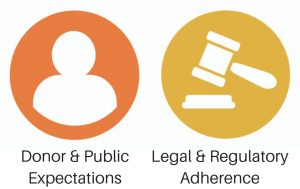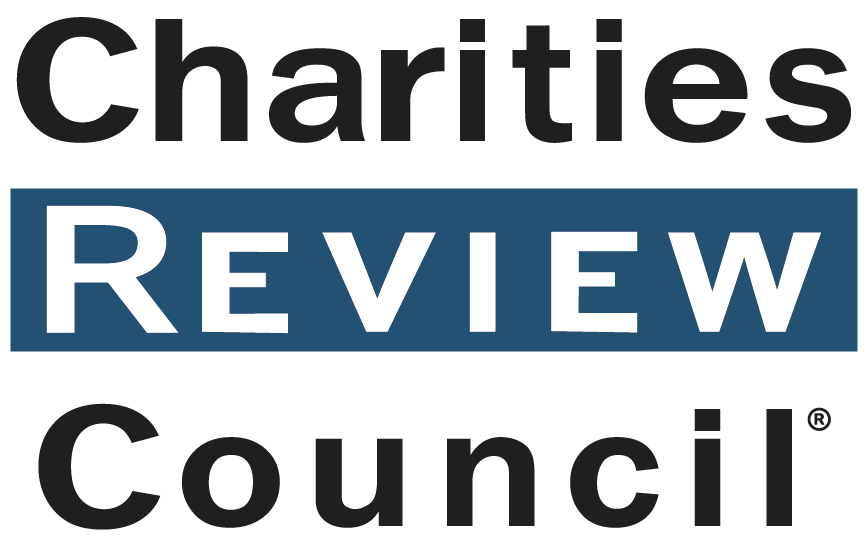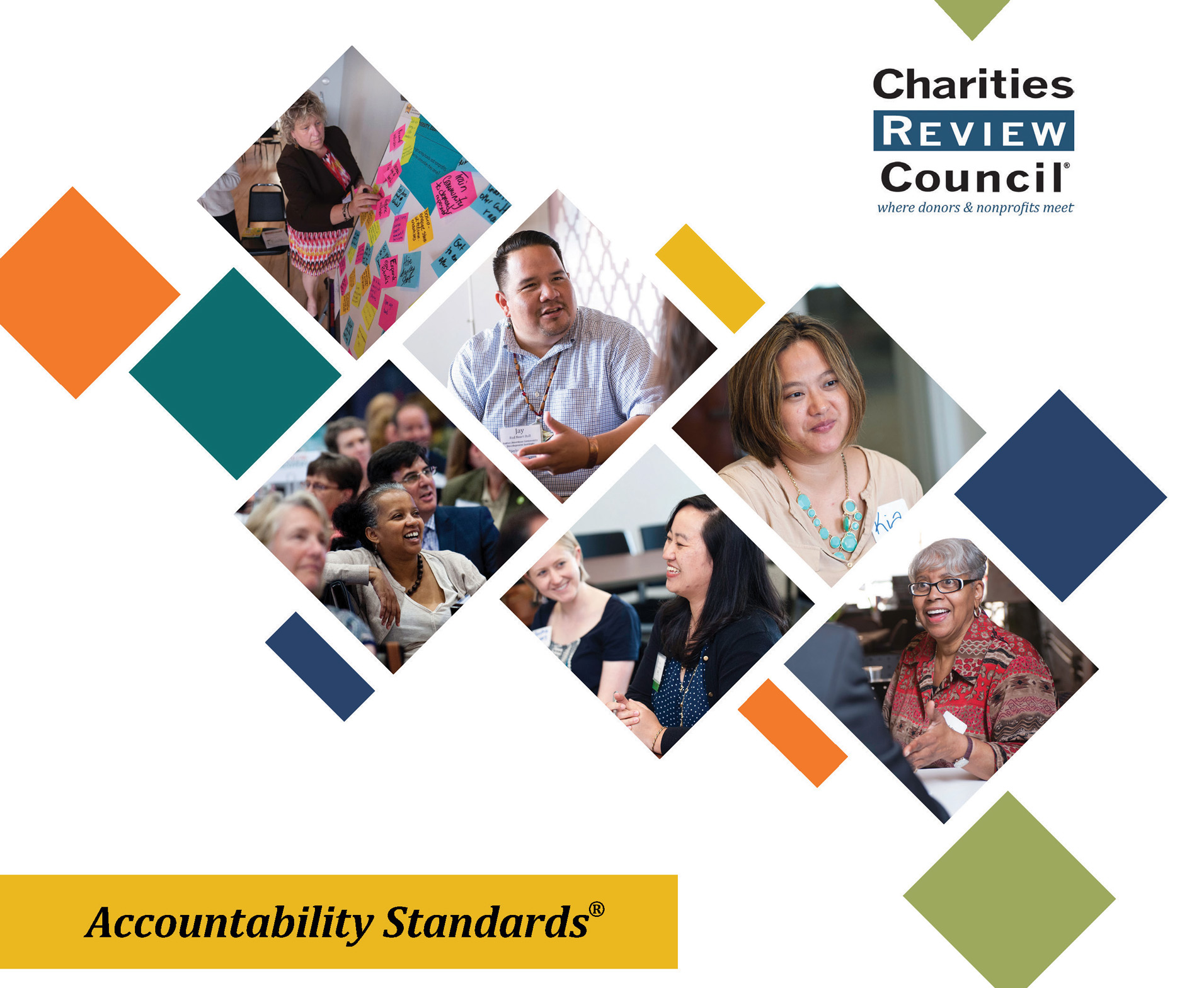This is the fourth and final post of our Accountability Standards® Blog Series. Thanks for tuning in!
In 2014, Charities Review Council piloted the rolling review of the Accountability Standards®, a process that would ensure the Standards remained relevant and meaningful to the community for the long-term. Last year, we gathered cross-sector leaders and subject-matter experts to help us review, re-write, and re-frame the Accountability Standards®.
Check out the new Accountability Standards® here!
For a more in-depth look at the revisions, we’ll be sharing a four-part blog series highlighting the four key categories, which include Public Disclosure, Governance, Financial Activity, and Fundraising.
Part IV: Fundraising Accountability Standards®
Charities Review Council’s Fundraising Accountability Standards® represent the shared expectations between donors and nonprofits of trust, transparency, and communication. These Standards, which include guidance on fundraising disclosures, donor privacy, professional fundraisers, and cause-related marketing, foster deeper communication between donors and nonprofits and forge greater public trust.
In this round of review, we simplified and clarified the language, rewriting the Standards from an asset-based approach. The requirements for nonprofits remained the same. Here’s what you’ll see going forward…
Fundraising Disclosures 
Philosophy
The future of equitable, successful philanthropy depends on strong donor–nonprofit relationships. Fundraising should always be honest and voluntary.
Standard
A nonprofit’s print, email, and electronic solicitations will include:
- The purpose or programs for which the contributed funds will be used,
- Tax-deductibility language, and
- The name and address or phone number of the nonprofit.
Donor Financial Information Security 
Philosophy
By protecting the personal and financial information of donors, nonprofits build trust with their supporters and community.
Standard
Donor financial information is kept safe through established internal controls and secure methods of online giving (if applicable).
Donor Privacy 
Philosophy
By protecting the privacy of donor information, a nonprofit fosters deeper communication and forges greater public trust.
Standard
By request or on its website, a nonprofit will provide a donor privacy policy that describes:
- What donor information is collected,
- How donor information is collected,
- How that donor information is used by the organization, and
- How to contact the organization in order to edit their information.
Additionally, the policy will allow donors to opt out of making their private information publicly available or shared.
Nonprofits will have a board-approved discontinue contact policy, allowing donors to opt out of receiving further communications from the organization, by oral or written request.
Soliciting Practices 
Philosophy
By engaging in transparent soliciting practices, nonprofits can foster trust, create stronger relationships, and connect more deeply with donors.
Standard
Solicitors who are not staff or volunteers of the nonprofit will:
- Identify themselves as professional fundraisers in each solicitation,
- State the name and location by city and state of the charitable organization he/she is soliciting for,
- Declare the tax-deductibility of the contribution,
- Describe the charitable program or purpose for which the solicited funds will be used.
Nonprofits will have both a signed contract with the professional fundraiser hired and proof of that fundraiser’s current and active registration with the Attorney General (in any states where required).
Additionally, when nonprofits engage in cause-related marketing, both the nonprofit and its for-profit partner will clearly state the amount being contributed to the nonprofit in promotional materials.
Let us know what you think! Share your feedback at info@smartgivers.org. Interested in serving on our Standards Review Committee in the future? Let us know. We’d love to have your voice and perspective at the table.
Questions about the new Accountability Standards®? Check out our FAQ’s here.


